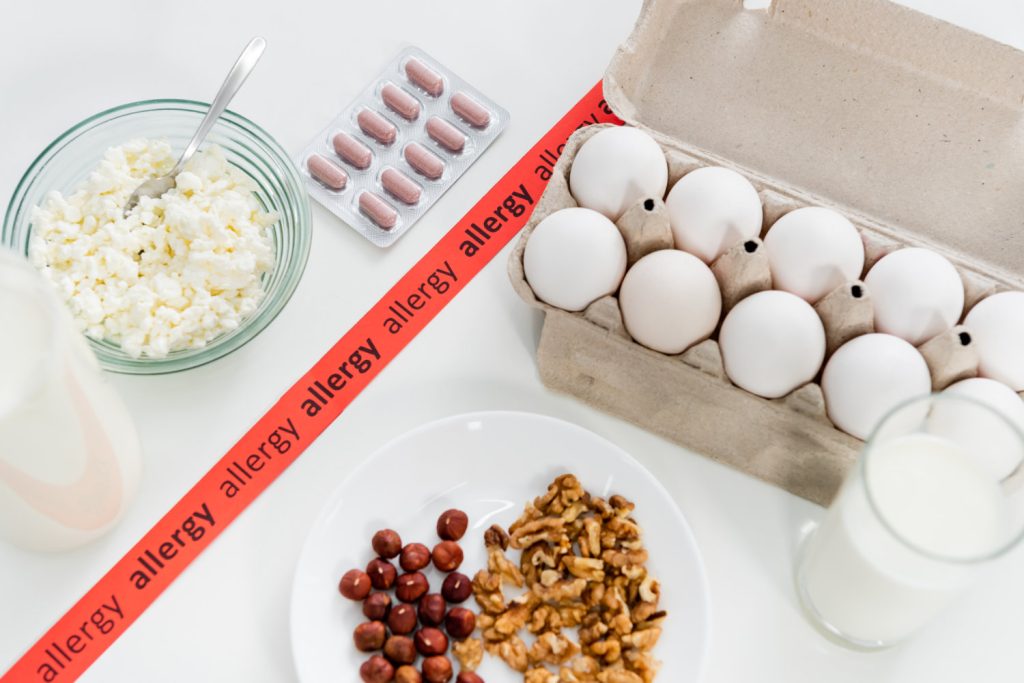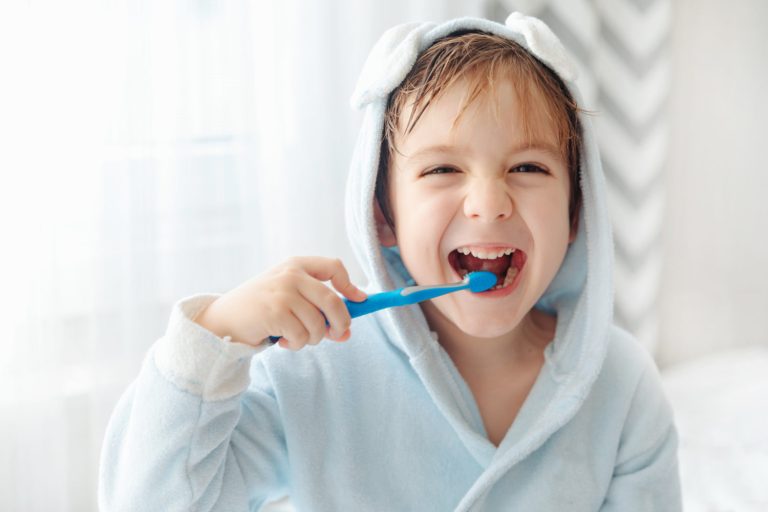The Fast Facts on Energy Drinks
Energy drinks are sold everywhere from gas stations to grocery stores. These brightly colored beverages promise a jolt of energy and focus, but it’s not always obvious what these drinks contain or how they may interact with your body. In this blog, we’ll explore the world of energy drinks, diving into their ingredients, potential benefits and drawbacks, and how to consume them responsibly.
What’s in an Energy Drink?
While each brand of energy drink contains slightly different ingredients, they often have several in common. These drinks typically contain caffeine, taurine, L-carnitine, guarana, ginseng extract, and B vitamins.
Taurine and L-carnitine are naturally produced in the body and help us turn nutrients like carbohydrates and fats into energy. B vitamins are also used in the body to help us produce energy, although we usually get these vitamins from proteins like meat, eggs, and dairy products.
Caffeine, guarana, and ginseng come from various plants and are often found in caffeinated beverages such as coffee, teas, and energy drinks.
Energy Drinks Can Improve Brain Function
Enhanced mental alertness is one of the biggest reasons we may reach for an energy drink. But do energy drinks actually increase mental alertness?
Studies conducted by University of the West of England suggest that energy drinks may indeed improve brain function metrics like memory, focus, reaction time, and even reduce mental fatigue. Notably, one study found that a single 8.4-ounce can of Red Bull enhanced both concentration and memory by around 24%.
While some researchers believe caffeine alone is responsible for this cognitive boost, others theorize that the synergy between caffeine and sugar in energy drinks might be key to maximizing the benefit.
Energy Drinks May Optimize Your Workout
One study suggests the effects of an energy drink before your workout may improve your workout performance; in this study, participants given a single can of Red Bull and displayed improved aerobic endurance, anaerobic performance, and better reaction time.
Another study suggests an energy drink before a workout can significantly increase upper body muscle endurance. And yet another study found participants who consumed an energy drink before a run on the treadmill were able to stave off exhaustion longer than those in the control group.
Energy Drinks Can Boost Mood
Various studies have observed positive mental health affects after consuming caffeine; some people find a moderate amount of caffeine improves social extrovertedness, decreases symptoms of depression and anxiety, increases the feeling of well-being and vitality, and may improve mood during cognitively demanding tasks or times of fatigue.
Health Risks of Energy Drinks
While there may be some health benefits to the occasional energy drink, there are also several health risks to consider before picking up an energy drink.
According to the CDC, energy drinks can pose several health risks, particularly for adolescents. A concerning statistic shows that in 2011 alone, nearly 1,500 adolescents aged 12-17 required emergency room treatment due to complications from energy drinks. The potential dangers include dehydration, heart complications like irregular heartbeat or even heart failure, anxiety leading to nervousness and jitters, and insomnia causing difficulty falling or staying asleep. Considering these risks, it’s important to be mindful of energy drink consumption, especially for younger individuals.
Energy Drinks and Heart Issues
While studies from Healthline show energy drinks can boost brain function and keep you alert, there are concerns about their impact on heart health. Some studies suggest these beverages can raise blood pressure and heart rate, while constricting blood vessels, all of which could negatively affect your heart, especially if you already have heart problems.
Experts generally believe excessive caffeine or caffeine mixed with alcohol is the culprit behind these heart-related issues. However, if you have a history of heart disease, atrial fibrillation, high blood pressure, heart attack, or other heart conditions, please consult with your doctor before consuming caffeine. Occasional and moderate consumption of caffeine by healthy adults with no prior heart issues likely poses minimal risk.
Energy Drinks and Alcohol
Amber Sommer, registered dietitian, emphasizes the dangers of mixing alcohol with energy drinks; “Mixing alcohol with an energy drink is a really bad idea,” she stresses. “The invigorating effects of the energy drink can mask the intoxicating effects of alcohol, so you don’t feel how drunk you’re getting.” This creates a deceptive and potentially dangerous combination.
Dr. Michael Lowenstein, medical director of Waismann Method, warns that caffeine can mask the effects of alcohol, leading to overconsumption and greater intoxication.
According to the Centers for Disease Control and Prevention (CDC), people who combine alcohol and energy drinks are four times more likely to binge drink compared to those who don’t. Additionally, they’re at a higher risk for engaging in unsafe sexual activity, driving under the influence, and sustaining injuries.
Energy Drinks and Medications
Be cautious when mixing energy drinks with prescription medications. Caffeine in energy drinks can occasionally interact with medications, especially anti-depressants, stimulants, and anti-anxiety medications, causing unintended side effects or a reduction in the medication’s effectiveness. Furthermore, energy drinks often contain other ingredients that may complicate interactions with medication.
If you take any prescription medications, it’s best to talk to your doctor before reaching for an energy drink.
Should Children or Teenagers Drink Energy Drinks?
The American Academy of Pediatrics recommends children under 12 avoid caffeinated drinks entirely, while adolescents between 12 and 18 should limit their intake to less than 100 milligrams per day. For reference, 100mgs of caffeine is equal to about one home-brewed 8oz. cup of coffee, while energy drinks can contain 200mgs or more of caffeine.
Dr. Bracho-Sanchez of New York-Presbyterian warns that anyone consuming as much caffeine that an energy drink contains may experience anxiousness, jitters, headaches, heart palpitations, and gastrointestinal problems – especially if they’re not used to that much caffeine.
While some caffeine may be okay as a special treat for kids and teens, the American Academy of Pediatrics emphasizes “stimulant-containing energy drinks have no place in the diets of children and adolescents.”
Alternatives to Energy Drinks
If you’re looking for a way to boost energy without reaching for an energy drink, we’ve compiled a list of suggestions for a more sustainable pick-me-up:
- Brewed Coffee: Enjoy a moderate cup of coffee for a natural energy boost. Coffee contains antioxidants and may even reduce the risk of cognitive decline, some cancers, and liver disease.
- Black Tea: Rich in variety, black tea is your go-to for a tea-based pick-me-up. It boasts the highest caffeine content among teas (around 45mg), offering a gentle lift compared to coffee.
- Green Tea: An overall health champion, green tea provides an energy boost along with potential benefits like fighting cancer, lowering heart disease risk, and aiding in weight management.
- Coconut Water: Packed with electrolytes, minerals, and antioxidants, coconut water is a refreshing post-workout drink to replenish energy.
- Kombucha: This fermented black tea drink is a gut-friendly option with only about 15mg of caffeine. It contains probiotics that can aid digestion and promote overall well-being.
- Sports Drinks: While sometimes high in sugar and calories, sports drinks like Gatorade, Propel, or Liquid IV can be helpful for replacing electrolytes lost during intense exercise, something most energy drinks lack.
Natural ways to stay energized
Looking to ditch the dependence on caffeine and sugary drinks? Registered dietician Amber Sommer suggests these natural approaches to keep your energy humming:
- Hydrate Regularly: Sipping water throughout the day prevents dehydration, a major energy zapper. Aim for eight glasses, adjusting for activity level and climate.
- Prioritize Sleep: Aim for 7-8 hours of quality sleep to feel refreshed and energized. Establish a relaxing bedtime routine and create a sleep-conducive environment.
- Eat for Sustained Energy: Balanced meals with lean protein, fruits, vegetables, and whole grains keep your blood sugar stable and prevent energy crashes. Think whole grains, fruits, and vegetables for long-lasting fuel.
- Move Your Body: Regular exercise is a natural energy booster. Aim for at least 30 minutes of moderate-intensity activity most days of the week. Brisk walking, cycling, or dancing are all great ways to get your blood pumping.
Energy drinks come with their fair number of benefits and disadvantages. When engaging with highly caffeinated beverages, it’s always best to consult your doctor before use and drink caffeine in moderation.




